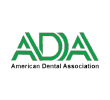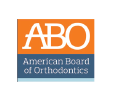 We want to make you smile.
We want to make you smile.Life with Braces
Now that you have your braces, how do you take care of them? It's important for you to know how to properly take care of your braces throughout your entire orthodontic treatment.
- Eating with Braces
- Cleaning Your Braces
- Care & Comfort
- Playing Sports
- Brochures & Videos
Don't worry; you'll be eating popcorn and snacking on potato chips again in no time! However, before you can start enjoying some of the treats you love, you will need to take special care to avoid any foods that could damage your new appliances.
Foods to avoid with braces:
- Chewy foods - bagels, licorice
- Crunchy foods - popcorn, chips, ice
- Sticky foods - caramel candies, chewing gum
- Hard foods - nuts, hard candies
- Foods that require biting into - corn on the cob, apples, carrots
Foods you CAN eat with braces:
- Dairy - soft cheese, pudding, milk-based drinks
- Breads - soft tortillas, pancakes, muffins w/o nuts
- Grains - pasta, soft cooked rice
- Meats/poultry - soft cooked chicken, meatballs, lunch meats
- Seafood - tuna, salmon, crab cakes
- Vegetables - mashed potatoes, steamed spinach, beans
- Fruits - applesauce, bananas, fruit juice
- Treats - ice cream w/o nuts, milkshakes, Jell-O, soft cake
Doing Your Part
It’s important that you take especially good care of your teeth during orthodontic treatment. By brushing and cleaning in between your teeth regularly, you’ll keep your teeth and gums in top condition and ensure that your orthodontic treatment will deliver the healthiest, most beautiful smile possible. Proper dental care will take a little extra time and effort, but it is well worth it. Closely follow the instructions your orthodontist and staff members give you.
Brushing Your Teeth with Braces
When to Clean?
You should brush your teeth thoroughly after every time you have a meal or snack. If you can’t brush right away after a meal, be sure to at least rinse your mouth well with water until you can brush. Carry a travel toothbrush so that you can brush when away from home. At least once every day, clean between your teeth first, then brush your teeth and braces thoroughly until they are spotlessly clean. The best time of the day to thoroughly clean your teeth and braces is at night, before you go to bed.
How to Brush?
Use a prescription fluoride toothpaste like Fluoridex and a soft, end-rounded bristle toothbrush or power toothbrush that’s in good condition. Your toothbrush or power toothbrush head should be changed frequently since the brackets on your teeth will quickly wear out the bristles. The American Dental Association recommends replacing your brush every 3 months; that translates to 4 times a year.
Brush around all the parts of your braces and every surface of your teeth - fronts, sides, and backs and chewing surfaces for at least 2 full minutes.
Be sure to brush your tongue and roof of the mouth, too.
A good way to tell if you’re brushing correctly is if your braces look clean and shiny and you can see the edges of the brackets clearly.
Brush your gums gently and thoroughly.
Rinse thoroughly after brushing with water or a mouth rinse recommended by your orthodontist.
Inspect your teeth and braces regularly and carefully to make sure they are spotless. Look closely in a well-lighted mirror. This is a good time to check for loose or broken brackets.
If you find a problem, contact the orthodontist’s office to see if it needs to be checked out and if time needs to be scheduled to make a repair.
Clean Between Teeth
Your orthodontist or family dental practice may recommend one or more of these aids to help keep your teeth clean:
INTERPROXIMAL BRUSH
This tool slips under your archwire to more completely remove plaque and food particles near your brackets.
How to Clean Between Your Teeth
Use a recommended interproximal cleaner or floss every night before you go to bed. Since it may take another minute or two, you won’t feel rushed. If you choose to use floss, it might be necessary to use what’s called a floss threader. This reusable tool allows you to get dental floss underneath your archwires easily. If you use floss, be sure you clean carefully along and under the gumline. And as with anything, a little practice will make it go a lot easier.
The Problems That Poor Oral Hygiene Can Cause
Good dental hygiene is critical during orthodontic treatment. Without it, plaque and food can accumulate around your braces. The bacteria in plaque react with sugars and starches in food you eat and form an acid that can eat away the enamel on your teeth, leading to permanent white stain marks, cavities or gum disease
Take Care of your Appliances
Damaged appliances can increase the length of your treatment process, so be sure to take care of all your appliances. Your teeth and jaw can only move into their correct positions if you consistently wear the rubber bands, headgear, retainer, or other appliances prescribed by your doctor.
General Soreness
When you get your braces on, you may feel general soreness in your mouth and teeth may be tender to biting pressures for three to five days. This can be relieved by rinsing your mouth with a warm saltwater mouthwash. Dissolve one teaspoonful of salt in 8 ounces of warm water, and rinse your mouth vigorously. Placing Orabase on the affected area may help; this can be found in a pharmacy. If the tenderness is severe, take whatever you normally take for headache or similar pain.
The lips, cheeks and tongue may also become irritated for one to two weeks as they toughen and become accustomed to the surface of the braces. You can put wax on the braces to lessen this. We'll show you how!
Soreness caused from braces and appliances
True orthodontic emergencies are very rare, but when they do occur we are available to you. As a general rule, you should call the office when you experience severe pain or when you have a painful appliance problem that you can't take care of yourself. We'll be able to schedule an appointment to resolve the problem.
You might be surprised to learn that you may be able to temporarily solve many problems yourself until you schedule an appointment with our office. When working with your appliances, you need to know the names of the parts of your appliances so you are able to identify what part is broken or out of place. After alleviating your discomfort, it is very important that you still call our office as soon as possible to schedule a time to repair the problem. Allowing your appliance to remain damaged for an extended period of time may result in disruptions in your treatment plan.
Loose Teeth
If your teeth begin feeling a little loose, don't worry; this is normal! Your braces must first loosen your teeth in order to move them into the right position. Once your teeth have been repositioned, they will no longer be loose.
Poking Wire
Using a pencil eraser, push the poking wire down or place wax on it to alleviate the discomfort.
Loose Bracket, Band or Wire
If your bracket or band is still attached to the wire, you should leave it in place and put wax on it. If the wire comes out entirely, wrap the bracket with a tissue.
If your wire is out of place; using a tweezer, try to put your wire back into place. If doing this and using wax doesn't help, as a last resort use a small fingernail clipper to clip the wire behind the last tooth to which it is securely fastened. If your discomfort continues, place wax on it.
Appliance Issues
If your appliance is poking you, place wax on the offending part of your appliance.
Sometimes headgear discomfort is caused by not wearing the headgear as instructed by your orthodontist. Please refer to the instructions provided by your orthodontist. If the facebow is bent, please call our office for assistance. Surprisingly, the headgear may hurt less as it's worn more, so be sure you're getting in the prescribed hours.
Protect Your Smile
Game, Set, Match! We have great news for athletes! You can still play sports even while undergoing orthodontic treatment! If you do play sports, it's recommended that you wear a mouthguard in order to protect your teeth and your appliance. Let your doctor know if you need help finding the right mouthguard for the best protection.
Sports Injury
In case of a sports emergency, be sure to immediately check your mouth and your appliance for any damage that may have occurred. If you notice any loose teeth, or if your appliance has been damaged, please contact our office right away. You can temporarily relieve the discomfort with wax or by rinsing your mouth with warm saltwater.






.png)